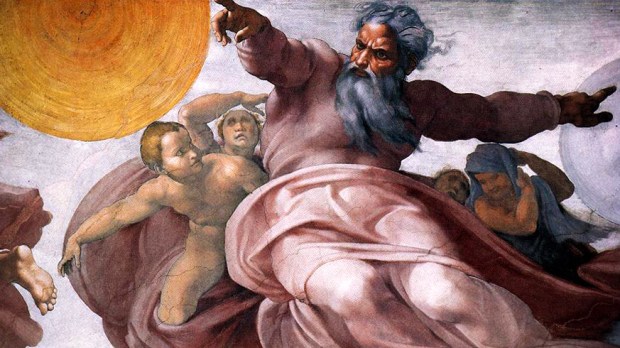For yours is the kingdom,
and the power,
and the glory,
now and forever. Amen.
We have been asking throughout this series on the Our Father what are we finally seeking by praying these seven petitions.
Essentially, we have prayed for our Father’s kingdom against our own; for his will against our own desires. We have prayed for his bread, that we may glimpse even while yet living in a sin-devastated world creation’s wounded splendor.
We have prayed for his forgiveness, while promising ours for the neighbor. We have sought protection against sin and evil, from the swirling trials of temptation toward false belief and despair.
Now we arrive at the Doxology, that part of the Our Father which is not part of the Our Father.
There opens an inquiry. Where did it come from? Not from the Bible.
Some late manuscripts of Matthew’s 6th chapter record the Doxology as the words of Jesus, but none the earliest do. Some contemporary translations still carry it, but most, including the New American Bible Revised, now omit it. So it isn’t in the Bible.
Still, there is evidence the Doxology arose early in Christian usage. Possibly it was in written form before any of the Gospels. The Our Father can be found―for the first time I think―in an early mid-first century document called the Didache (“the teaching”), and it includes the Doxology.
The Didache is mentioned in Eusebius’ The Church History (roughly 325), and some few Church Fathers thought it belonged in the New Testament.
Intriguingly, some scholarship points to its possible composition as a result of the Apostolic Council (Acts 15:28), a further instruction for Gentiles coming to what hitherto had been a Jewish Church. That would be around the year 50 (only 17 or so years after the Resurrection and still 20 years before the first gospel, St. Mark’s).
The Didache was a catechism, a liturgical guide for Baptism and Eucharist, and a manual on Christian ethics. The year 50 would also make it the earliest work where Lord’s Prayer appears with the Doxology. This would also tell us the Our Father and Doxology formed some part of the Church’s earliest oral memory of Jesus.
It appears Christians just added it because it seemed right, I’d guess, and it stuck.
The Doxology is included in the Mass, of course, but not directly as part of the Our Father itself. That’s how we know Catholics are different from Protestants. Catholics pause; Protestants push on.
The Didache, however, instructs Christians to say the Our Father three times daily, morning, noon, evening; Doxology included. Hankering for some of that old time religion one hears about? There’s the Doxology.
This piece appears on Resurrection Sunday and just as the empty tomb compels us to think about life in a world where Christ is raised, the Doxology of the Our Father confronts us with the kingdom, the power, and the glory that belongs to the Father who raised our Lord Jesus Christ from death.
It is a bold declarative doxological explosion of praise to the Most High God of Israel who―through Jesus―now encourages us to address him as “our Father.” The words introduce nothing new to the prayer we pray. But they will make us think.
We have to ask what these are, given the resurrection of the crucified Christ, this kingdom, this power, this glory.
Most obviously the kingdom, the power, the glory are not ours. We are relieved from the arrogance of building my kingdom, my power, my glory, all for me.
That means God’s kingdom, power, and glory are unutterably different from anything we might suppose. Remember, we are warned never to think God is like us. (Ps. 50:21) That is a chastening thought.
God delegates himself by Christ for humanity and becomes derelict, abandoned to the cross. What we think of kingdom, and power, and glory must been viewed in a sense that defies human comprehension, except as seized by faith.
God’s kingdom? Do we not find it on the cross, in a ruined man next to a thief who becomes the first subject of Christ’s kingdom? (Lk 23:42)
God’s power? Isn’t that Christ lifted up to a cross from which he will draw all people to himself, “indicating,” he said, “the manner of his death”? (Jn 12:32-33)
God’s glory? Is that Christ carrying unto Resurrection the wounds received from crucifixion? (Jn 20:27)
God’s glory in Christ is to create out of this a new people in the midst of daily life, create a people such as our selves, and create us in a way that by our voice others may hear the voice of God’s love.
In the Father’s kingdom, it is his power and his glory to create in us clean hearts, that we become Christ’s hands and the channels through which his love flows into our world. The Doxology properly is how the Our Father ends, and it is why we must always begin “our Father.”

